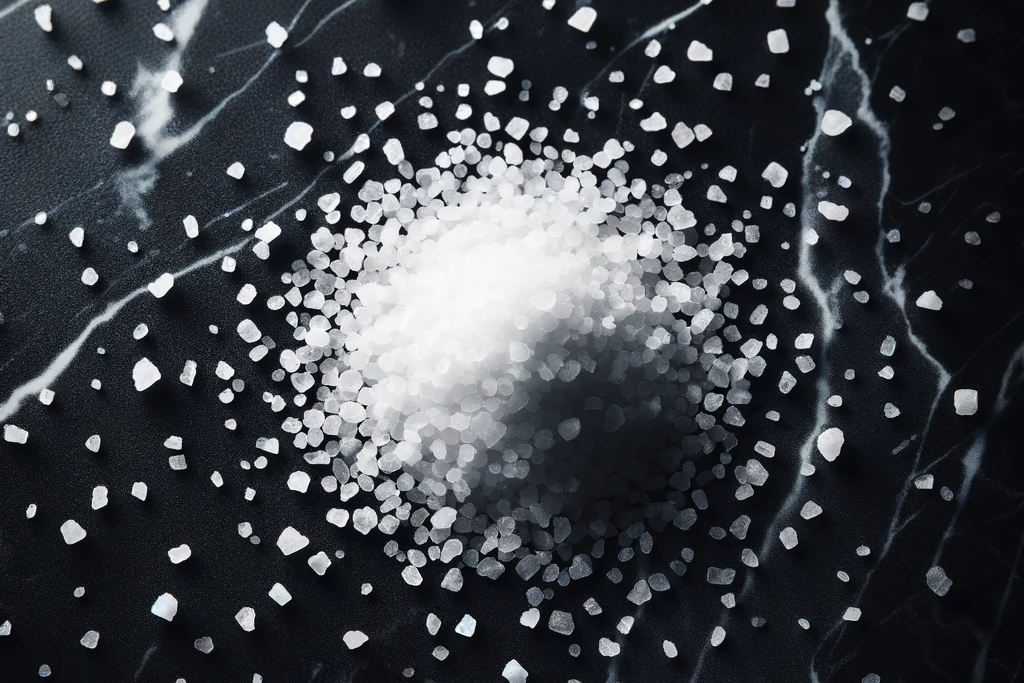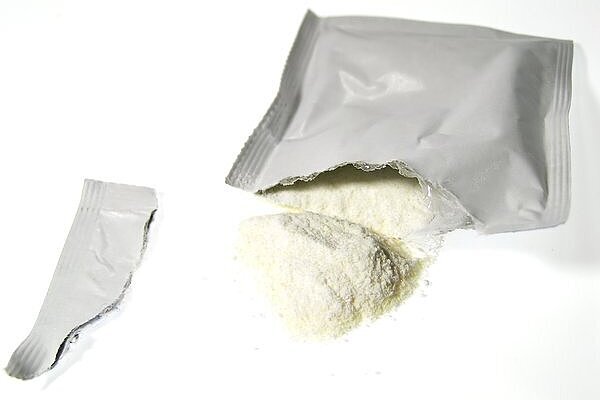Sodium propionate

In the constant search for the best nutrition and protection for our dogs, we come across a variety of additives whose names and effects often remain a mystery. One of these substances is sodium propionate, a preservative that plays a role in both human and animal nutrition. But what exactly is sodium propionate, and how does it affect the health of our four-legged friends? In this article, we'll answer these questions and take a closer look at the pros and cons of sodium propionate for dogs.
What is sodium propionate?
Sodium propionate is the sodium salt of propionic acid, a natural organic acid found in some foods and also in the metabolism of higher organisms. Approved as E 281 in the food industry, it is mainly used as a preservative to inhibit mold and certain bacteria. Its ability to extend the shelf life of products without negatively affecting taste or appearance makes it a valuable additive in many processed foods.
Properties and applications
Sodium propionate is effective in suppressing molds and some types of bacteria. It is widely used in bread and bakery products, animal feed and in packaged and preserved foods. Thanks to its antimicrobial effect, it helps to ensure the safety and quality of food.
Benefits of sodium propionate for dogs
Preservation of dog food
The most obvious benefit of sodium propionate for dogs is its role as a preservative in dog food. By inhibiting the growth of mold and bacteria, sodium propionate helps to keep the food fresh and safe for consumption. This is especially important in humid or warm climates where food can spoil quickly.
Health benefits
When consumed in moderate amounts, there is no evidence that sodium propionate has any harmful effects on dogs. On the contrary, as part of a controlled diet, it can help to increase the safety of the food by protecting against harmful microorganisms.
Disadvantages and risks
Potential hypersensitivity
As with any additive, there are potential risks, particularly if a dog develops a specific sensitivity or allergy to sodium propionate. Although rare, such hypersensitivity reactions could lead to skin irritation, gastrointestinal problems or other allergic reactions.
Lack of long-term studies
A major drawback in the use of sodium propionate and other preservatives in animal feed is the lack of long-term studies on potential effects. Without extensive research, it is difficult to fully understand the long-term health effects of continuous intake of these substances.
Sodium propionate plays an important role in the preservation of dog food by increasing the safety and freshness of the food. Its use as a preservative can help reduce the risk of food poisoning and other illnesses caused by microorganisms. However, it is important that dog owners pay attention to the ingredients in their pets' food and seek professional advice if there are any signs of hypersensitivity or allergic reaction. Choosing high quality foods made with safe and tested preservatives is crucial for the health and wellbeing of our dogs. As with everything concerning our faithful companions, balance and informed choice is key.
If you notice any signs of hypersensitivity or poisoning in your dog, you should see your vet immediately. We are not a substitute for a vet, but we try to be as accurate as possible. Every dog reacts differently and we recommend you get a second opinion or consult your vet if in doubt.
Stay healthy and take good care of your four-legged friend!😊
Similar to Sodium propionate
Calcium propionate is a salt that is produced synthetically from propionic acid (E 280). Propionic acid is an organic acid that also occurs naturally in some foods such as cheese or sauerkraut....
Sodium benzoate (C7H5NaO2) is the sodium salt of benzoic acid, an organic compound that occurs naturally in some fruits and spices. It is often used as a synthetic preservative in foods,...
Potassium sorbate is the potassium salt of sorbic acid, a natural organic acid found in some fruits such as berries. Potassium sorbate has an antimicrobial effect, i.e. it inhibits the growth of...
Magnesium stearate is a salt consisting of magnesium and stearic acid. Stearic acid is a saturated fatty acid found in many vegetable and animal fats. Magnesium stearate has a white, powdery or...



